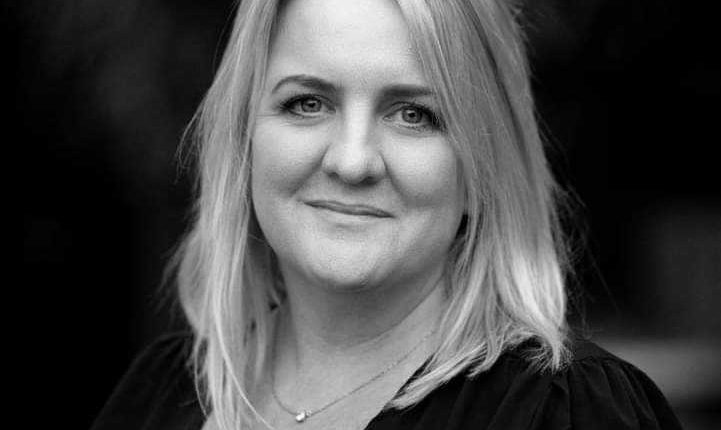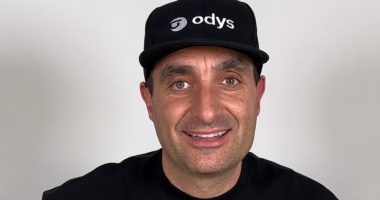MILLIONS of people across the UK struggle with debt, especially with the cost of living so high.
But it needn’t stop you from finding success, as Hannah Love proves, after going from bankruptcy after racking up huge debts, to running her own business.
The former nanny from Berkshire struggled with debt while she was at university and it spiralled from there.
She told The Sun: “I trained as a nurse at Kings College University London and my nursing bursary didn’t even cover my train travel to and from London.
“The £20 a day train fairs, or parking and petrol, soon added up, as did food in London and I put this on credit cards.”
With high costs and a low wage of just £5,500 a year Hannah, like many people, turned to credit cards.
Read more money stories
After building up £15,000 in credit card debt, she took out a personal loan to pay it off.
After graduating with her nursing degree, Hannah went on to study further in nutritional and craniosacral therapy, which prompted her to borrow more.
She said: “I wasn’t being frivolous and buying expensive shoes and bags – I was simply paying for day-to-day things – petrol, train tickets, lunch, food shopping and the cost of the courses – this soon mounted up.”
Hannah’s debts spiralled and after eight years she owed over £50,000 on credit cards and loans.
Most read in Money
She added: “In my early years I was a little bit in denial, I was studying, young and thought that I would just pay it off when I was earning and not studying.”
“I didn’t really understand the severity of the debt.”
Unable to afford rent and bills along with repayments Hannah opted for an Individual Voluntary Agreement (IVA) – an agreement with your creditors to pay all or part of your debts.
She said: “I entered into an IVA to start paying off the debt. The companies I owed money to agreed to freeze the interest payments and I agreed to a set amount for five years.”
With an IVA you agree to make regular payments to an insolvency practitioner, who will divide this money between your creditors.
But before long she found this agreement impossible to keep up with after falling pregnant with her first child, Oliver, now aged 15, and was forced to declare bankruptcy.
“It wasn’t something I felt good about doing but I didn’t feel I had any other choice,” she said.
“I had wanted a baby for as long as I can remember, my whole life had been dedicated to babies and children.”
“No matter what stress this [money] caused, it wouldn’t have dampened my excitement of becoming a mummy.”
What is bankruptcy?
Bankruptcy is a legal status whereby debts cannot be repaid.
In the UK being bankrupt is limited to applying to individuals but in the US and some other countries, it can be applied to companies as well.
The word itself is derived from the Italian phrase banca rotta meaning “broken bank”.
In the modern world, it normally involves a restructuring of debts in an attempt to rehabilitate those who owe the money and sometimes continue with their business.
In most jurisdictions, people or companies are declared bankrupt by a court order.
Hannah recommends anyone struggling with debts to seek help as soon as they can.
She said: “Seek help, don’t brush it under the carpet- if you acknowledge it then you can start to address and move forward from it.”
“And know that there is a life after bankruptcy if that’s what you need to do to help yourself out of an impossible situation.”
What to do if you are struggling financially
THERE are many steps you can take to help avoid an insolvency process if your debts are mounting.
- The very first thing an individual should do is consider their monthly income and expenditure and trim the fat by ceasing payments which are either luxury or non-critical.
- An individual should also review their list of direct debit and standing orders with their bank; many mortgages allow for a payment holiday.
- Consider ways to supplement income, for example by renting out a room.
- Individuals should also consider, where possible, paying off the debts with a higher rate of interest first.
- The individual can of course take advice from Citizen’s Advice or a debt charity.
- Talking to someone about your money problems can feel like the hardest thing in the world, but taking that first step and opening up is vital. Watch out for dodgy debt advisors, though – make sure the person you’re talking to is qualified and regulated. There is no need to pay for debt advice.
- If you take advice early enough, you may be able to avoid an insolvency procedure by budgeting carefully and managing your debts. Ensure that you are claiming any benefits or tax reliefs you are entitled to.
- Entering an insolvency procedure (an Individual Voluntary Arrangement, a Debt Relief Order, or bankruptcy) isn’t the end of the world. It can provide a clear plan for dealing with debts and help relieve the worry around managing money, but it’s important to know what you’re getting yourself into.
Bright idea
And it was Hannah’s positive attitude that led to her developing a business idea.
“I set up my business in 2008 when I was eight months pregnant with my son Oliver,” she said.
“I googled ‘Sleep Specialist’ and nothing came up, there was very little support in the way of sleep and any advice was only surrounding Controlled Crying (something I have never advised).”
“I was already supporting my parents in many other ways. So my husband Daryl, 40 encouraged me to hand out leaflets and made me a website for my first business Yummy Baby.”
Hannah went back to work as a nanny and her son Oliver with her for three years whilst she built up her business.
“I traded as a sole trader under Yummy Nutrition for a year or two and then set up an LTD company in about 2010.”
She said: “At this point, I was probably averaging about £1,000 a month through Yummy Baby so when the family we were working for moved away, just two months before our wedding I decided to take the jump and work for my business full time.”
“In 2011 I fell pregnant with Ella, now 11, who came along in the summer of 2012 and we bought our first house.
I had another baby, Henry, now 8, in 2015 and during that time worked on building the business.
Baby boom
By the time of the pandemic, Hannah was ready to scale her business and enhance her skills, despite having two more kids – Ella, 11 and Henry, eight – and a big mortgage.
“My first big investment was a sleep course in October 2020, I think this was about £2,000 and it seemed like a big amount at the time but has paid off many times over.”
In fact it was perfect timing, with many parents struggling stuck at home with their kids – everything Hannah knew about babies sleeping became an asset.
She said: “Luckily, after an initial quiet time while everyone got their heads around the new rules and way of life, my business went mental. I couldn’t keep up.”
“I set up my new business Sleep Well with Hannah and opened my Facebook community, which three years later supports 10,000 parents.
“I also set up my Instagram account which now has over 12,000 followers.”
“I also launched my signature sleep course, which is always available, and sleep clubs which I run three times a year.”
“In January of 2021, I ran my first ever live free sleep workshop. That month I helped nearly 500 parents for free, the same workshop this month in 2024 helped over 3,500 parents, for free.”
Now Hannah’s business is supporting her entire family and her husband even left his corporate job to help her manage the business.
She said: “Last year we took home £110,000 and this year we’re on track to top that by at least 10%.”
“It is a far cry from my last job. I haven’t had another job for many years but when I was a nanny I was earning about £250 a week.”
READ MORE SUN STORIES
“As for Daryl, he has been my biggest support since I started my business 16 years ago.”
“We threw the idea around for a while of him joining me and in August of last year we decided to take the huge jump and he handed in his notice at Xbox.”
How to get debt help for free
THERE are lots of groups who can help you with your problem debts.
- Citizens Advice – 0808 800 9060
- StepChange – 0800 138 1111
- National Debtline – 0808 808 4000
- Debt Advice Foundation – 0800 043 4050
You can also find information about Debt Management Plans (DMP) and Individual Voluntary Arrangements (IVA) on the MoneyHelper and on the Government’s Gov.uk site.
Speak to one of these organisations – don’t be tempted to use a claims management firm that will claim it can write-off lots of your debts in return for a large up-front fee.












